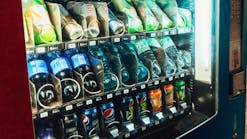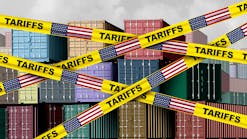FDA Softening Stance On CBD? What Is In Store For Vending Employers?
Source Darren Grady & Heather Bailey of SmithAmundsen
While many following the rise of the cannabis industry in the United States have seen CBD-infused food and drink products hitting the market, what many may not know is that CBD-infused products remain illegal at the federal level. CBD, short for cannabidiol, is a compound in cannabis which has recognized medical value, but does not produce the high or euphoria created by the more commonly known cannabis compound THC. Congress legalized CBD derived from hemp in December of 2018.
Last summer, the FDA approved Epidiolex, the very first CBD medication cleared for patient use in the United States. Somewhat ironically, this approval has given the FDA pause in its formal position on CBD in food and drink products. Until last month, the FDA’s stated position has clearly been that CBD-infused food and drinks were illegal because none of those products had gone through the rigorous regulatory testing to which Epidiolex was subjected before approval. However, the FDA indicated a possible position change, when (outgoing) chief Scott Gottlieb spoke about the potential for legalizing CBD infused food and drinks as long as those products met certain regulatory standards.
The FDA’s formal statement included the following: “There are open questions about whether some threshold level of CBD could be allowed in foods without undermining the drug approval process or diminishing commercial incentives for further clinical study of the relevant drug substance.” In late 2018, the FDA released a statement saying that it would crack down on CBD in food and drinks (and there have been inspections, penalties, and fines on certain retailers nationwide, notably in New York, Ohio, California, and Maine). At the very least, last month’s statement shows that the FDA is envisioning a world where certain CBD-infused food and drinks could be legal at the federal level.
Should that world become a reality, some experts envision the CBD market will reach $16 billion annually by 2025. Currently, CBD businesses wishing to infuse the compound into food and drinks must take on a certain amount of risk and bet on the eventual legalization of CBD infusions. The FDA’s recent statement, however, is consistent with the slow warming of the Federal Government to the legalization of cannabis and cannabis related products. While the FDA still seems cautious about legalizing these products for the time being, CBD infusions will likely become legal but highly-regulated products.
In this new CBD-infused world, this legality of medical and recreational use becoming more prevalent, especially in this industry with the safety-sensitive positions such as route drivers, employers should be on high alert. There is no time like the present to prepare – this includes understanding that off-duty use of a lawful substance may be protected under disability and/or privacy laws. Yet, employers may very well have no-tolerance drug policies (or even DOT testing programs) that include no reporting to work under the influence. To the extent substance screening is used, employers may need to closely evaluate their policies to ensure that they meet both the company’s actual policies and their enforcement (e.g., zero tolerance vs. zero impairment) – without infringing upon the employee’s disability and/or privacy rights. Moreover, now more than ever, employers should be having management properly trained on how to detect and record reasonable suspicion when employees report to work under the influence. In a world where someone may test positive for legally drinking soda that is infused with CBD on their day off, reasonable suspicion of being under the influence at work is so much more important these days than the actual testing.
For those wishing to enter this emerging market and current manufacturers of CBD-infused food and drinks, should certainly keep an eye on the FDA’s position as the proverbial tides begin to change. In fact, CBD businesses, entrepreneurs, and enthusiasts can do more. The agency is holding a public hearing on CBD at the end of May and will be taking comments from the public. The FDA wants data on safety of CBD in food products as well as feedback on how the FDA could regulate certain aspects of the industry (including manufacturing, marketing and labeling). It is anticipated that the FDA could share its findings and conclusions on CBD as early as this summer. For those in the industry, the time to make your voices heard is now.








